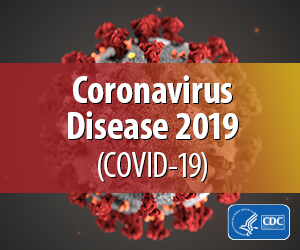The Federal Motor Carrier Safety Administration (“FMCSA”) has issued an Emergency Declaration for motor carriers and drivers providing direct assistance in support of relief efforts related to the COVID-19 outbreaks. The declaration commenced on March 13, 2020, to provide certain limited relief under 49 CFR Parts 390-399 to those providing such direct assistance except for compliance with the following: (i) drug and alcohol use and testing requirements (Part 382); (ii) CDL requirements (Part 383); (iii) insurance requirements (Part 387); (iv) the hazardous material regulations (Parts 100-180); and (v) applicable size and weight requirements, or any other portion of the regulations not specifically exempted under § 390.23.
The definition of ‘direct assistance’ applied by the FMCSA for these purposes refers to commercial motor vehicle operations which are needed for:
(1) Medical supplies and equipment related to the testing, diagnosis and treatment of COVID-19;
(2) Supplies and equipment necessary for community safety, sanitation, and prevention of community transmission of COVID-19 such as masks, gloves, hand sanitizer, soap and disinfectants;
(3) Food for emergency restocking of stores;
(4) Equipment, supplies and persons necessary to establish and manage temporary housing, quarantine, and isolation facilities related to COVID-19;
(5) Persons designated by Federal, State or local authorities for medical, isolation, or quarantine purposes; and
(6) Persons necessary to provide other medical or emergency services, the supply of which may be affected by the COVID-19 response.
However, the FMCSA has stated that direct assistance does not apply to routine commercial deliveries, or transportation of mixed loads that include essential supplies, equipment and persons, along with supplies, equipment and persons that are not being transported in support of emergency relief efforts related to the COVID-19 outbreaks.
The FMCSA has further outlined that direct assistance terminates when a driver or commercial motor vehicle is used in interstate commerce to transport cargo or provide services that are not in support of emergency relief efforts related to the COVID-19 outbreaks or when the motor carrier dispatches a driver or commercial motor vehicle to another location to begin operations in commerce.
Upon termination of direct assistance, the motor carrier and driver are subject to the requirements of 49 CFR Parts 390 through 399, except that a driver may return empty to the motor carrier's terminal or the driver's normal work reporting location without complying with Parts 390 through 399.
Furthermore, the Emergency Declaration specifically calls out that if a driver informs the motor carrier that he or she needs immediate rest, the driver must be permitted at least 10 consecutive hours off duty before the driver is required to return to the motor carrier's terminal or the driver's normal reporting location. Upon the driver’s return to the terminal or other location, the driver must be relieved of all duty and responsibilities and must receive a minimum of 10 hours off duty if transporting property, and 8 hours if transporting passengers.
The Emergency Declaration will remain in effect until termination of the emergency (as defined in 49 CFR 390.5) or until 11:59 PM Eastern Time on April 12, 2020, whichever occurs sooner. The complete Emergency Declaration is available here.
If you have any questions or need further guidance related to this directive, please contact Matt Selby at mselby@beneschlaw.com or any other member of the experienced Benesch transportation team.
***
Please note that this information is current as of the date of this Client Alert, based on the available data. However, because COVID-19’s status and updates related to the same are ongoing, we recommend real-time review of guidance distributed by the CDC and local officials.

